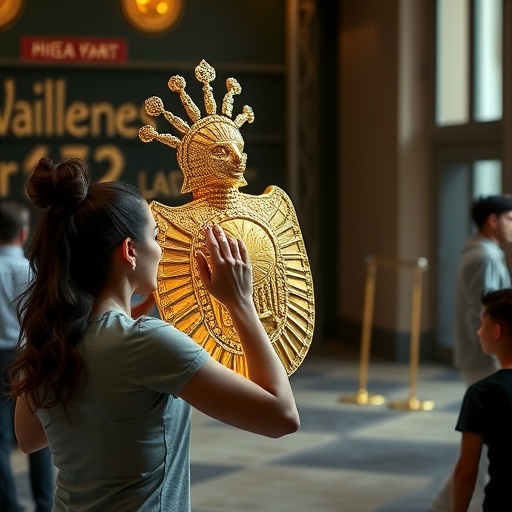In a groundbreaking international study just published in Nature Medicine, researchers reveal that the arts—beyond their traditional realms of entertainment and expression—possess powerful capabilities as public health interventions. This meta-analysis, commissioned by the Jameel Arts and Health Lab and encompassing 95 studies across 27 countries and over 230,000 participants, explores how music, dance, theater, storytelling, and other creative cultural activities can serve as effective tools for disease prevention and health promotion on a global scale.
Non-communicable diseases (NCDs), including heart disease, diabetes, and cancer, continue to dominate global mortality statistics, accounting for approximately 74% of preventable deaths worldwide. Governments and health organizations are intensifying their efforts toward prevention rather than treatment, aiming to stem the tide before these debilitating illnesses take hold. The study’s authors advocate for incorporating arts-based interventions into these preventative frameworks, noting the unique psychosocial and behavioral advantages these programs offer.
The timing of this study coincides with critical policy developments, arriving just one week before a major World Health Organization (WHO) high-level meeting focused on NCD prevention and mental health promotion. The evidence presented strengthens calls to integrate arts into public health infrastructure, highlighting their cost-effectiveness and scalability as innovative prevention methods embedded in community engagement.
Principal investigator Jill Sonke, Ph.D., of the University of Florida’s Center for Arts in Medicine and affiliated with the Jameel Arts and Health Lab, emphasizes that prevention strategies must shift upstream. Sonke argues that arts programs create enriched environments where public health messages are not only disseminated but internalized in culturally sensitive and emotionally resonant ways, thereby fostering sustained behavior change.
Methodologically, this meta-analysis syntheses diverse research designs to evaluate arts-based programs’ impacts on key health indicators related to lifestyle and disease susceptibility. These programs include community theater productions about nutrition, dance initiatives that increase physical activity, and culturally grounded gardening projects fostering social cohesion. The collective findings suggest that blending health education with creative expression enhances message retention and relevance far beyond conventional health campaigns.
Of particular interest is how arts initiatives function to overcome common barriers in health promotion: engagement and adherence. Typical prevention campaigns often falter because they fail to maintain participants’ interest over time. By leveraging artistic experiences—often communal, enjoyable, and participatory—these programs significantly increase the likelihood of ongoing involvement and meaningful lifestyle adjustments.
Another critical dimension uncovered by the study is the cultural specificity of arts-based interventions. Drawing on platforms such as traditional dance or community gardening rooted in local heritage allows these programs to resonate deeply within communities, promoting equity by tailoring health prevention messages to diverse social and cultural contexts.
Despite these promising findings, the study acknowledges gaps in the existing evidence. Most research to date has focused on high-income countries, leaving low- and middle-income regions underrepresented. Furthermore, longitudinal data on the durability of health benefits derived from arts engagement remain limited, underscoring the urgent need for further research in this field.
Co-leader Michael Tan, Ph.D., dean of research at the University of the Arts Singapore, highlights the transformative potential of these findings. He envisions a future where arts are embedded systematically in health promotion infrastructures, not as ancillary activities but as core components capable of reducing health disparities and enhancing community wellbeing.
The research also underscores the value of arts as a public health platform capable of integrating social determinants of health, including social welfare and class, into disease prevention strategies. This multifaceted approach aligns with contemporary paradigms that recognize illness and prevention as deeply interconnected with social and cultural frameworks.
Nisha Sajnani, Ph.D., a professor at NYU Steinhardt and co-director of the Jameel Arts and Health Lab, advocates for the arts to be recognized as essential public health resources. She points out that these creative and cultural activities, grounded in robust community partnerships, can dramatically close equity gaps by broadening access to health information and cultivating healthier behaviors on a widespread scale.
This research represents a paradigm shift in public health thinking, offering compelling evidence that the arts are not mere embellishments, but fundamental components of effective prevention. By fostering emotional engagement, cultural resonance, and community participation, the arts provide an innovative, scalable, and human-centered approach to combating the world’s leading causes of death.
As the global health community gathers to commit to NCD prevention, the integration of arts-based strategies could redefine the future of disease prevention. Beyond treating illness, this new approach holds promise to nurture wellness through creativity, social connection, and cultural identity—transforming the health landscape worldwide.
Subject of Research: People
Article Title: The arts for disease prevention and health promotion: a systematic review
News Publication Date: 18-Sep-2025
Web References: http://dx.doi.org/10.1038/s41591-025-03962-7
References: Sonke, J., Tan, M., Sajnani, N., et al. (2025). The arts for disease prevention and health promotion: a systematic review. Nature Medicine. https://doi.org/10.1038/s41591-025-03962-7
Keywords: Disease prevention, Disease susceptibility, Social welfare, Social issues, Social class, Cultural practices, Entertainment, Fine arts, Recreation




